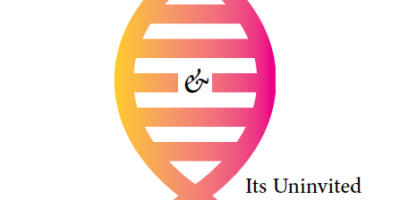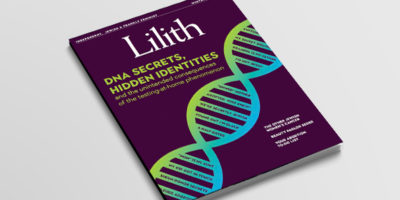The Era of Family Secrets Is Over
An interview with Libby Copeland suggests that this means the end of family secrets.
When and where did you first start writing or reading about DNA testing?I write about the intersection of science, culture, and human behavior, and I started reporting on home DNA testing after some conversations with my Washington Post editor, who was interested in how unexpected results play out for people. Members of my family had already started doing DNA testing to try to learn more about our family’s genetic ancestry and health issues, and my dad had given me a “spit kit” for the holidays, though I hadn’t actually sent my saliva in yet. So I was already curious about the implications of this technology. When, through interviews, I began learning about the many ways in which DNA testing can play out for people, I became intrigued by the idea that this technology—sometimes called “recreational genomics”—might amount to far more than an entertaining and informative pastime. Indeed, it might actually be changing how we relate to one another and how we regard ourselves.
What were some of the surprising human results you came across? I started hearing a lot of stories about how customers’ results could lead to radical reconfigurations of their families, not to mention their own identities. For instance, some people who were conceived by sperm donor suddenly discover ten, twenty or more half-siblings through that donor. (A few families have between 100 and 200 half-siblings through a single donor, believe it or not). Adoptees are able to find their birth parents through testing, which is an incredible gift for those who may have been denied access to that information by state laws. Some people discover the men they consider their dads are not their genetic fathers. Then they have the grapple with the implications of this knowledge. What is fatherhood? What is family? How do you forge relationships with half-siblings you didn’t know existed till you were fifty? How do you have difficult conversations with family members who may not have told you the truth about how you came into the world—albeit for what they thought were good reasons? And, in many cases, testers also must wrestle with their notions of ethnicity and race, especially when those little “pie charts” of ancestral heritage that companies like AncestryDNA give suggest that they are something other than they thought they were. Are race and ethnicity tied to experience or to genetics? And what does it mean for our ideas about biological difference when companies suggest that they can read such a thing in the genes? Do these tests reinforce genetic essentialism and make us more reductive in how we think about race?
What prompted you to delve even more deeply into these stories?I wound up writing a feature story for The Washington Post about the story of a woman named Alice Collins Plebuch, who thought she was mainly of Irish descent, and was told by an AncestryDNA test that she was half Ashkenazi Jewish. At first, she wasn’t sure if the test was accurate, and she wound up testing elsewhere. And then she wound up doing a lot of tests—she and her sister facilitated at least 21 DNA tests for family and strangers over the course of what became a two-and-a-half year genetic detective odyssey. Alice was confounded by the implications of her unexpected ethnicity prediction, because it essentially meant that one of her parents wasn’t who she thought, and, in fundamental ways, she was also not who she thought she was. And it also opened up a new space for her to explore what it means to be descended in part from Jewish people, even though she was raised Catholic.
When Alice’s story came out, the reaction was huge. The story went viral and was reprinted in a number of other publications. And then I started getting emails from readers sharing their own stories.
What did these emails reveal? Within weeks I had several hundred stories from the forefront of genetic testing, some from experienced genealogists who’d been into the hobby for a decade or more, and others who—like Alice—had tested on a lark, without realizing how the results might upend their lives. As I began to talk to people about these discoveries, I learned there was a lot of nuance and beauty to the way that people processed such personal revelations, and how they worked out new relationships and had difficult conversations about the past. These experiences were neither “good” nor “bad;” rather, they were often complicated and bittersweet. Ultimately, testers told me, they were glad to know the truth about their identities, even when the discoveries were painful. This echoed a sentiment passed on to me by the genealogist CeCe Moore, who first shared Alice’s story with me, and has helped Alice and many others in their searches.
I realized I had the opportunity to explore what seemed like a really important moment for the American family. I wanted to return to Alice’s story and tell it more fully. I had to go back 100 years, and while I couldn’t do that in a newspaper article, I certainly could for a book. I also wanted to see how her family’s story played out differently for her and each of her six siblings. Because there are so many siblings within Alice’s family, the question of “What does this DNA test mean?” has a seven-sided answer.
In a few decades, will there be fewer secrets to uncover, more or different ones? The era of family secrets is over. That doesn’t mean that you can’t still hide the Halloween candy from your kids, of course. What it means is that the big secrets—the ones hidden in our genes— cannot be kept under wraps any longer. That’s because even if you don’t choose to test, you are effectively opted in by the fact that someone else within your circle of relatives probably already has. Tens of millions of Americans have sent their saliva into commercial genetic testing companies, and tens of millions more will in the next few years. A man who conceived a child thirty years ago can be located by that child even if he never takes a test because his sister or daughter or second cousin tests.
How can we handle this new reality? It’s incredibly important for people in possession of genetic secrets to consider having tough conversations sooner rather than later. This is important because it’s far better to learn a difficult truth from a loved one than by way of a list of “DNA relatives” on a computer screen. And it’s also important because, as those I’ve interviewed have told me over and over, people deserve to know the truth about their own genetic identities.
Because so many people have tested and had DNA surprises, and because so many adoptees are using testing to find their birth families, psychologists, genetic counselors, nonprofit organizations and online communities have begun to arise to offer support and guidance. So if you are wrestling with how to have a difficult conversation, you’re most certainly not alone in this, the age of genetic reckoning.



